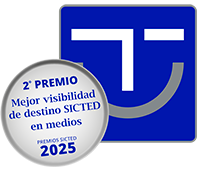- Accede I
- Regístrate I
- carrito
Transportes y aduanas
Las producciones cuyo equipo técnico y/o humano proceda de otro país total o parcialmente, así como las empresas españolas que decidan rodar en el extranjero, han de prever y organizar su actividad de acuerdo con la legislación vigente de transportes y aduanas. De acuerdo con ella, no es necesario hacer ninguna declaración ni pagar ningún tipo de tasa para transportar material entre los países de la Unión Europea debido a la abolición de las fronteras fiscales entre los estados miembros.
Los estados miembros de la Unión Europea son veinticinco: Alemania, Austria, Bélgica, Chipre, Dinamarca, Eslovaquia, Eslovenia, España, Estonia, Finlandia, Francia, Grecia, Hungría, Irlanda, Italia, Letonia, Lituania, Luxemburgo, Malta, Países Bajos, Polonia, Portugal, Reino Unido, República Checa y Suecia. Además de estos países, otros cuatro estados (Bulgaria, Croacia, Rumanía y Turquía) han presentado sus candidaturas de ingreso, aunque de momento no forman parte de la Unión.
El transporte de material entre países no miembros de la UE se rige por las condiciones del llamado Cuaderno ATA, un formulario expedido por la Cámara de Comercio e Industria (o su equivalente) de cada país, que permite exportar material audiovisual de manera temporal. Cada país determina la cuantía del aval o cheque bancario que es obligatorio dejar en concepto de depósito.
Países que exigen un depósito del 100% sobre el total del material.
Argelia, Botswana, Croacia, Estonia, India, Israel, Lesotho, Líbano, Lituania, Macedonia, Marruecos, Namibia, Rusia, Sudáfrica, Swazilandia, Tailandia, Túnez, Turquía y China.
Países que exigen un depósito del 50% del total del material.
Australia, Bulgaria, Canadá, Corea del Sur, Costa de Marfil, Eslovaquia, Eslovenia, Estados Unidos, Gibraltar, Guadalupe, Hong Kong, Hungría, Islandia, Japón, Malasia, Malta, Martinica, Mauricio, Noruega, Nueva Caledonia, Nueva Zelanda, Polonia, Chequia, Rumania, Saint Pierre et Miquelon, Senegal, Singapur, Sri Lanka, Suiza, Tahití y Chipre.
Canarias y Andorra exigen un depósito del 25% del total del material salvo en el caso de grupos musicales y teatrales. El resto de territorios no mencionados en las relaciones anteriores no exigen ningún tipo de depósito, aunque se recomienda ponerse en contacto con el consulado correspondiente a fin de concretar los trámites. La reimportación del material se tiene que hacer durante el periodo de validez del Cuaderno ATA.
El transporte de animales entre países no comunitarios requiere un permiso previo del Ministerio de Agricultura. Si el transporte se produce entre países comunitarios, en cambio, el permiso lo otorga el departamento de Medio Ambiente. Este permiso está sujeto a ciertas restricciones, conforme a las cuales todos los animales han de pasar un control veterinario. Si el médico lo considera oportuno, incluso se le puede someter a un periodo de cuarentena.
El transporte de material cinematográfico impresionado o revelado supone siempre un proceso de exportación. La película debe reenviarse al país de origen en régimen de reexportación simple incluso en los casos en los que se haya impresionado o revelado en el España. Cuando la película no se haya revelado en España, la lata deberá incluir una nota en inglés con la leyenda “Do Not Open” y “Do Not X-Ray” a fin de evitar daños en la película por apertura o exposición a rayos X.



